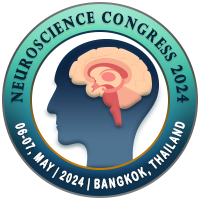
Fariha Khaliq
National University of Sciences & Technology, PakistanTitle: Decoding degeneration: the implementation of machine learning for clinical detection of neurodegenerative disorders
Abstract
Machine learning represents a
growing subfield of artificial intelligence with much promise in the diagnosis,
treatment, and tracking of complex conditions, including neurodegenerative
disorders such as Alzheimer’s and Parkinson’s diseases. While no definitive
methods of diagnosis or treatment exist for either disease, researchers have
implemented machine learning algorithms with neuroimaging and motion-tracking
technology to analyze pathologically relevant symptoms and biomarkers. Deep
learning algorithms such as neural networks and complex combined architectures
have proven capable of tracking disease-linked changes in brain structure and
physiology as well as patient motor and cognitive symptoms and responses to
treatment. However, such techniques require further development aimed at
improving transparency, adaptability, and reproducibility. In this webinar, I will
provide an overview of existing neuroimaging technologies and supervised and
unsupervised machine learning techniques with their current applications in the
context of Alzheimer’s and Parkinson’s diseases.
Biography
Fariha Khaliq
completed her master’s in biomedical sciences from National University of
Science and Technology, Pakistan. Her Masters project dealt with classifying
rare pulmonary diseases using machine learning. She spearheaded the
conceptualization, writing and submission of an invited review article on the
implementation of machine learning algorithms in the clinical detection of
neurodegenerative diseases. She acted as a corresponding author on this article
which is published in Neural Regeneration Research, with an impact of 6.058.
Fariha has been interviewing for PhD positions in top-tier universities across
the world, with focus on United Kingdom. She intends to continue her research
in further developing novel machine learning algorithms to predict and/or
diagnose severe and complicated neurodegenerative disorders.

